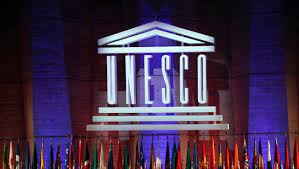Culture shift : On the U.S.’s UNESCO re-entry
UNESCO must get strict with nations exiting and re-entering on frivolous grounds
The United States said earlier this week that it was rejoining the United Nations Educational, Scientific and Cultural Organization (UNESCO). In 2017, the Trump administration withdrew from the organisation after the Obama administration ceased funding, in 2011. The reason for the U.S’.s return is ostensibly ‘China’, with senior U.S. administration officials stating that the U.S.’s absence had helped China gain “more influence ” in setting the rules around artificial intelligence and the ensuing technological shifts. For a change, this is the first time that ‘China’ has been proffered as a reason for the U.S.’s re-entry into, rather than its exit of, a multi-lateral treaty. During the pandemic, in 2020, President Trump announced the U.S.’s withdrawal from funding the World Health Organization — the year too when he moved to withdraw the U.S. from the Paris Agreement. This followed from the Trumpist world view that the U.S. was being shortchanged by major polluters such as China and India. In the case of WHO, the case was over its ‘inadequate’ response time to the gravity of the pandemic originating in China. Following political change, President Joseph Biden has now brought the U.S. back into the fold of funding WHO as well as rejoining the climate treaty.
Unlike the ‘America First’ policies that propelled the Trump administration’s exits, the U.S.’s UNESCO re-entry has little to do with why it exited it in the first place, which was, as it was believed, “an anti-Israel bias ”. The U.S., then and now, remains Israel’s staunchest ally and does not recognise Palestine. It is not unreasonable to infer that the re-entry is a sign of America’s growing paranoia about China. It is also appropriate to recall that the Reagan administration withdrew from UNESCO in 1984 for, among other things, “ advancing Soviet interests”. Developments in AI are slightly different from historical technological developments. Here, product patents and their enforcement have helped countries such as the U.S. maintain their edge, but with AI, China, along with a rising repertoire of patents and research publications, has the advantages of a much larger population and a more powerful surveillance state. This feeds into a cycle of generating greater troves of data that in turn feed and improve machine learning systems that make its AI far more formidable. Unlike other technologies, no country can have a sustained, natural edge in AI indefinitely. America might bring in atleast $600 million in outstanding dues to the UNESCO but it is high time — and countries such as India would do well to point this out — that the organisation gets stricter on countries exiting and entering on frivolous grounds, alongside framing policies and research that accommodate the tussles of a hyper-connected world.
